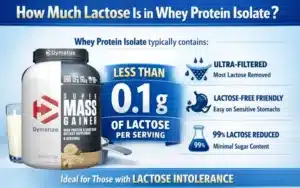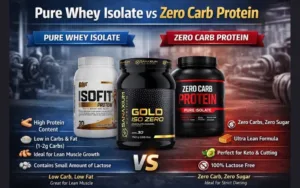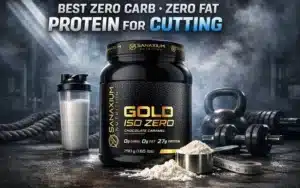No products in the cart.
Return To ShopHow to Choose the Right Vitamin Supplements | Expert Guide
Choosing the right vitamin supplements can feel like stepping into an overwhelming maze. Rows of brightly colored bottles promising everything from boosted energy to better skin line the shelves, and it’s easy to wonder: “Where do I even start?”
But here’s the truth—it’s not about grabbing the first multi-vitamin with a shiny label or following the latest trend. Your body is unique, and so are its needs. So, let’s break it down, simplify the process, and guide you toward the right choices for you.
Understanding Your Nutritional Needs
The first step in choosing the right vitamin supplements isn’t at the store, but with yourself. What does your body actually need? This might sound obvious, but it’s surprising how many people dive into supplements without really thinking about their personal nutritional gaps.
Everyone’s body has different needs based on factors like age, diet, activity level, and even where you live. For example, if you’re someone who avoids dairy, you might be missing out on calcium.
Or if you live in a place with long, dark winters, you could be running low on vitamin D. Vegetarians and vegans often need extra B12 because it’s mostly found in animal products. In contrast, someone with a diet rich in fruits and vegetables might not need an additional boost in vitamins C and K.
Ready to take control of your health? Include these vitamins and minerals your body truly needs.

Consulting with Healthcare Professionals
Let’s be honest—Dr. Google can be helpful, but there’s no substitute for professional advice. Before adding supplements to your routine, it’s always a good idea to check in with a healthcare professional. A doctor, nutritionist, or even a dietitian can provide valuable insights based on your specific health profile.
For example, they might run a blood test to see if you’re low in iron or vitamin D. These tests provide a much clearer picture of your nutritional status than self-diagnosing. A healthcare professional will also make sure the supplements you’re considering won’t interact poorly with any medications you’re taking.
Decoding Supplement Labels
Now, you’re standing in the supplement aisle, and you flip over the bottle. What do you see? A long list of unpronounceable ingredients and numbers, right? Reading supplement labels can be confusing, but learning to decode them is crucial if you want to make the best choice.
Here are some tips for breaking it down:
- Serving size: This is the first thing you should look at. Often, one serving is not the entire pill or gummy, but two or three. Pay attention, so you don’t accidentally take more (or less) than needed.
- Fillers and additives: Avoid unnecessary fillers, artificial colors, or sugars. These ingredients don’t provide any nutritional benefit and could potentially be harmful in the long run.
Quality Over Quantity: What to Look for in a Supplement

You might be tempted to go for a multivitamin that promises to do everything. Who wouldn’t want an “all-in-one” solution, right? But when it comes to supplements, less is often more. Quality should always be your top priority, not quantity.
Look for supplements from trusted, reputable brands that prioritize high-quality, pure ingredients. These companies often use better manufacturing processes and are more transparent about what goes into their products. It might cost a bit more, but when it comes to your health, it’s worth investing in the best.
Whole-food-based supplements are an excellent choice as well. These supplements are made from concentrated whole foods, meaning they come with additional nutrients like fiber, antioxidants, and enzymes that help your body absorb the vitamins better. This is much closer to how your body naturally processes nutrients from food, making them more effective.
The Role of Lifestyle in Supplement Choice
Your lifestyle is another key factor when choosing supplements. Your daily routine can greatly influence which vitamins your body needs. For example:
- Active individuals: If you exercise regularly or lead a very active lifestyle, your body might need more magnesium, potassium, and electrolytes to recover properly. You may also benefit from omega-3 fatty acids for joint health and inflammation reduction.
- Stressful life: If stress is a daily part of your life (and let’s face it, for many of us, it is), consider supplements like vitamin B-complex, magnesium, or adaptogens like ashwagandha, which help with stress management.
- Indoor lifestyle: If you spend most of your time indoors or live in a cloudy region, vitamin D should definitely be on your radar. Lack of sunlight can easily lead to a deficiency, which impacts your mood, immune system, and bone health.
Your lifestyle shapes your nutrient needs, so be mindful of how your habits may influence what your body requires.
Choosing Between Synthetic vs. Natural Supplements
This debate—natural vs. synthetic—comes up often, and it’s worth considering. Many people prefer natural supplements, which are derived from whole foods and more closely resemble the nutrients you’d get from a balanced diet. These are usually easier for the body to absorb and are seen as less harsh on your digestive system.
However, synthetic supplements, which are made in a lab, aren’t always bad. Some synthetic vitamins, like ascorbic acid (vitamin C), are chemically identical to the ones found in nature. In some cases, they might even be more concentrated or stable than natural versions.
The trick is understanding when each one makes sense for your needs. If you have the option, lean towards natural, but don’t dismiss synthetic completely, especially if cost or availability is a factor.
Synergistic Nutrient Pairings: Enhancing Absorption

Taking vitamins isn’t just about getting enough of each nutrient—it’s also about how they work together. Some vitamins and minerals have synergistic relationships, meaning one helps the body absorb or use the other more efficiently. Knowing which ones pair well can maximize the benefits of your supplement routine.
Here are a few powerful nutrient pairings to keep in mind:
- Vitamin C + Iron: If you’re taking plant-based iron supplements (non-heme iron), pairing them with vitamin C—like orange juice or a vitamin C capsule—can significantly boost absorption. This is especially helpful for vegetarians or those with iron deficiency.
- Vitamin D + Calcium: These two work as a team to support bone health. Vitamin D helps your body absorb calcium more efficiently, so combining them is often recommended, especially for older adults or anyone with bone density concerns.
- Magnesium + Vitamin D: Magnesium activates vitamin D in the body. Without enough magnesium, your vitamin D levels might not be as effective, even if you’re taking supplements regularly.
By understanding and applying these nutrient synergies, you’re not just taking vitamins—you’re making them work smarter for your body.
Personalized Supplementation: Tailoring to Individual Needs
One-size-fits-all is fading fast in the supplement world. Today, personalized nutrition is rising, and for good reason—your body’s needs aren’t exactly the same as anyone else’s.
Brands are now offering custom-formulated vitamins based on online quizzes, DNA tests, bloodwork, and lifestyle surveys. These personalized supplements consider everything from your age and gender to your stress levels and sleep patterns.
The benefits? You’re not just guessing what to take—you’re filling real gaps based on your body’s unique profile. Plus, it helps avoid unnecessary ingredients that don’t apply to you. If you’re overwhelmed by generic options, consider exploring a brand that builds a plan around you.
Regulatory Oversight and Third-Party Testing
Supplements might look like medications, but they’re not regulated the same way. In many countries, including the U.S., dietary supplements don’t need FDA approval before hitting the market. That’s why it’s so important to choose products that have been independently verified for safety and quality.
Here’s what to look for:
- Third-party certifications: Reputable testing organizations like USP (U.S. Pharmacopeia), NSF International, or ConsumerLab test supplements for purity, potency, and label accuracy.
- Transparency: Brands that share their manufacturing processes and lab results are typically more trustworthy.
Without third-party testing, there’s no guarantee you’re actually getting what’s listed on the label. When you see these quality seals, you can feel more confident about what’s going into your body.
Special Considerations for Specific Populations
Not everyone needs the same vitamins—and for some people, certain supplements are more essential. Your life stage, diet, and health status all play a role in what you should prioritize.
Here’s a quick breakdown:
- Vegans and Vegetarians: Since plant-based diets often lack B12 (found mainly in animal products), supplementation is usually necessary. Iron, iodine, omega-3s (EPA/DHA), and zinc are also nutrients to watch.
- Older Adults: As we age, the body’s ability to absorb nutrients like vitamin B12 and vitamin D decreases. Bone-supportive nutrients like calcium and vitamin K2 also become more important.
- Pregnant and Breastfeeding Women: Needs go way up for folic acid, iron, calcium, and omega-3s to support both the mother and the developing baby. Prenatal vitamins are specifically designed to cover these increased demands.
Understanding these nuances ensures you’re not missing critical nutrients specific to your health journey.
Best Practices for Supplement Intake

How and when you take your vitamins matters just as much as which ones you take. A few simple habits can make your supplements far more effective:
- Take with food: Fat-soluble vitamins (A, D, E, and K) are best absorbed with a meal that contains healthy fats. A handful of nuts or a spoonful of yogurt can do the trick.
- Be consistent: Like any healthy habit, consistency is key. Set a daily reminder or keep your supplements next to your toothbrush to help make it part of your routine.
- Monitor and adjust: Get bloodwork done at regular intervals—especially if you’re taking supplements for a known deficiency. Over time, your needs may change, and your routine should too.
By using supplements strategically and consistently, you’ll support your health more effectively and avoid unnecessary waste or risk.
Potential Risks and Side Effects
Supplements can seem harmless because they’re “just vitamins,” but overdoing it can have serious consequences. Too much vitamin A, for instance, can cause toxicity, leading to headaches, dizziness, and even liver damage. Similarly, too much iron can lead to iron overload, which can be dangerous for people who don’t need it.
It’s important to approach supplementation with balance in mind. Always follow the recommended dosage unless your healthcare provider advises otherwise. And remember, supplements are meant to supplement—not replace—a healthy diet. Real, whole foods should still be your main source of nutrition.









Add comment